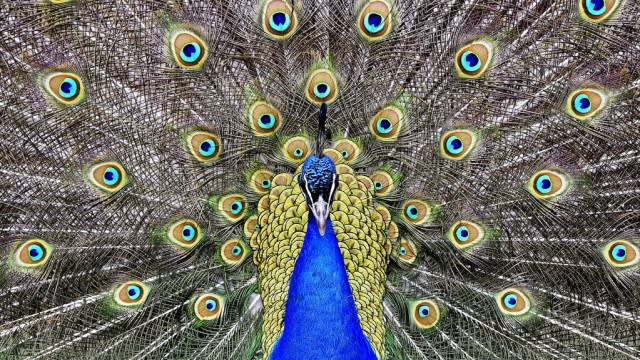Florida residents hope peacock vasectomies can solve a bird problem

"We're going to catch one peacock and probably stop seven females from reproducing. It’s going to have an exponential benefit."
That's what veterinarian Don J. Harris told the New York Times as he and others in Pinecrest, Florida hope that performing vasectomies on male peacocks there will solve a pesky bird problem in the town.
“Peacocks are bona fide polygamists,” he said.
As the Miami Herald reported, the birds, which are natives of Sri Lanka and India, were brought to the city for their aesthetic, but later became a nuisance as they continued to procreate and create problems, including causing peacock poop to spread around town.
SEE MORE: 'Hank the Tank' bear moved to sanctuary after breaking into 21 homes
Residents say the peacocks have been causing all sorts of problems like scratching the roofs of homes and causing damage to vehicles.
In the affluent area of Pinecrest, a city of about 18,000 just south of Miami, that isn't working for residents.
The birds are also loud, people say. They are very vocal at both sunrise and sunset.
"They poop in people's driveways, sidewalks — and people have complained about slip and fall accidents," Harris said.
So, the town of Pinecrest has turned to vasectomies for the male birds to mitigate the procreation problem they have. The town spends about $7,500 per month on vasectomies, according to reports. The county said it would also add in an extra $15,000 for medical supplies to make the procedures happen.
Now the main challenge is humanely catching the birds before performing the procedure on them.
Officials hope the procedure, which cuts the vas deferens on the male peacocks, will cut down on how many babies are born and help the town work out the issues coming from its invasive feathered friends.
"Most people see one peacock and they’re like, 'Oh that’s nice.' We're talking about large numbers of birds that take up a lot of space and get very aggressive and protective of their nest," said Pinecrest County Commissioner Raquel Regalado.
